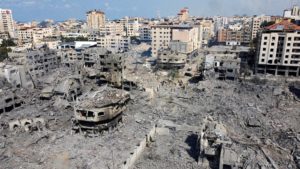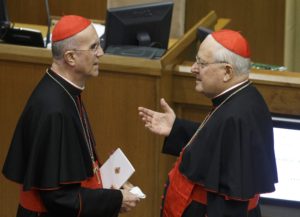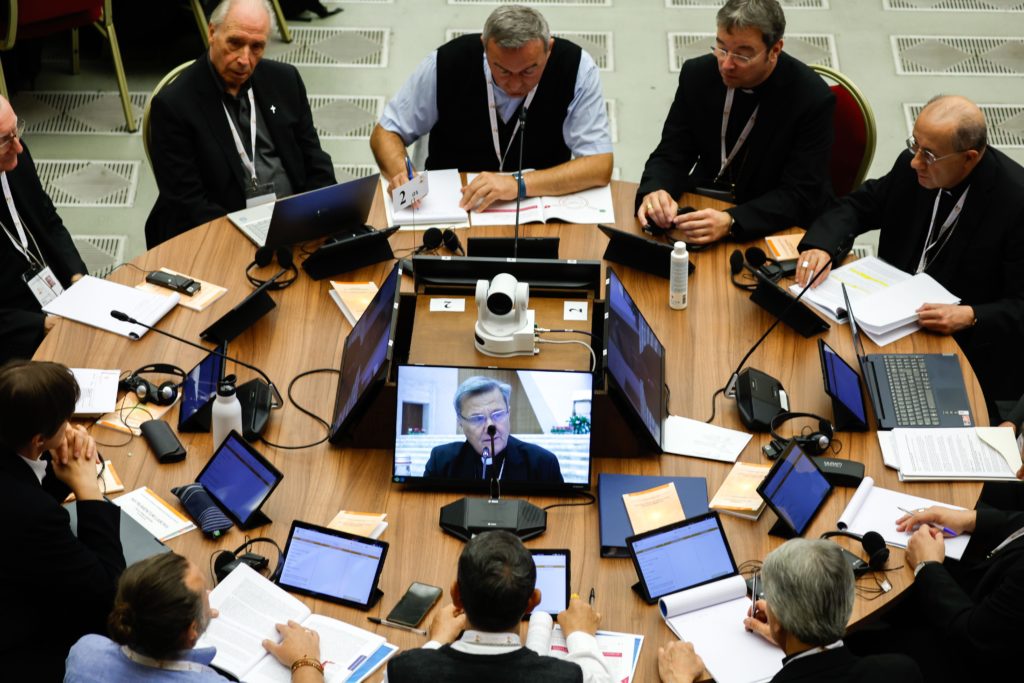ROME — Though the citation may be apocryphal, former British Prime Minister Harold Macmillan is credited with history’s most famous answer to the question of what’s the greatest challenge facing any political leader, diplomat or statesman.
“Events, my dear boy, events,” is the classic reply.
Pope Francis and his team may be feeling something of the same thing these days, watching their Synod of Bishops on Synodality, an assembly that’s been three years in the making, be essentially swamped by the outbreak of war between Israel and Hamas.
While the Vatican is notoriously adept at ignoring the outside world when doing so suits its purposes, in this case it’s virtually impossible to hold the broader global situation at bay, especially since the Holy Land is the birthplace of the tradition whose future this assembly has been convened to ponder.
It should be said that this is not the first time the agenda of a synod has been hijacked, to some extent, by an unforeseen external drama.
The Synod of Bishops on the New Evangelization met Oct. 7-28, 2012, just as a cease-fire in the Syrian civil war had broken down and the government of Syrian President Bashar al-Assad launched an all-out assault intended to wipe out the resistance. The day the synod opened, fighting was raging for control of Aleppo, including mass bombings of civilian neighborhoods by the Syrian Air Force, in a campaign that would eventually leave an estimated 35,000 to 40,000 people dead.

Syrian Christians were especially vulnerable as the carnage wore on, including seemingly deliberate bombings of Christian neighborhoods in Damascus while the synod was meeting.
In that context, participants couldn’t simply pretend nothing was happening. On Oct. 16, the synod announced that it would dispatch a special delegation to Damascus, composed of five senior prelates representing the five continents of the world, to express the synod’s concern and solidarity. The lineup was to include Cardinal Timothy Dolan of New York, who, at the time, was also the president of the U.S. bishops’ conference.
“We cannot be mere spectators of a tragedy like the one that is unfolding in Syria,” Italian Cardinal Tarcisio Bertone, then the Vatican’s Secretary of State under Pope Benedict XVI, told the synod in making the announcement.
In the end, that delegation never got off the ground, in part because of security and logistics issues, and in part over fears that Assad wouldn’t allow members to meet with the Syrian opposition and that their presence could amount to a government propaganda coup.
No doubt, there will be similar pressure on this synod to do something equally dramatic — and, ideally, more effective than the aborted peace mission a decade ago. Already, important Jewish leaders in the United States have called on the synod to condemn “atrocities” carried out by Hamas militants, while pro-Palestinian activists in Italy have appealed to the synod to warn Israel against “disproportionate” retaliation.
What might the synod do?
On Oct. 12, the assembly devoted its morning prayer to peace in the Holy Land, and there likely will be calls to set aside time for similar reflection Oct. 17, the date the Latin Patriarch of Jerusalem, Cardinal Pierbattista Pizzaballa, has designated as a special day of fasting and prayer for peace and reconciliation.
Beyond that, it’s possible there will be calls to issue an appeal for peace in the name of the synod. We’re talking about a gathering of 464 Catholic leaders from all over the world, including a broad swath of the Church’s hierarchy, and the optics of such a body remaining mute on the defining global trauma of the day likely will strike many participants as undesirable.

On the other hand, cobbling together a joint statement could be tricky — especially if such an effort were to bog down in disputes between some participants who would want a clear condemnation of Hamas terrorism, and others who would insist on criticizing Israeli policies in Gaza and the West Bank as well.
As all this unfolds, there are two possible consequences worth pondering.
First, the reality of war unfolding as the synod meets make it likely that the focus in discussions will become more “ad extra,” meaning directed to the outside world, rather than “ad intra,” referring to the Church’s own internal life. Frankly, many participants likely will feel that discussing matters such as the blessing of same-sex unions or women deacons while the world is in flames is uncomfortably close to fiddling while everywhere other than Rome burns.
As an extension of that point, participants from other parts of the world may also insist that conflicts in their neighborhoods deserve the same attention as the war between Israel and Hamas. Africans, for instance, may want to use the opportunity to make the point that wars on their continent rarely draw the same level of international concern, such as the violence currently raging in Sudan.
Second, it’s possible that the horrors of what’s happening in the Holy Land may succeed where papal admonitions and pious appeals so far have failed, putting the standard ideological tensions in Catholicism aside in order to face more urgent challenges.
Whether that’s actually what happens will depend upon decisions made by synod participants and leaders over the next few days. This may not be what they came to Rome to do — but events, as ever, wait for no one.

